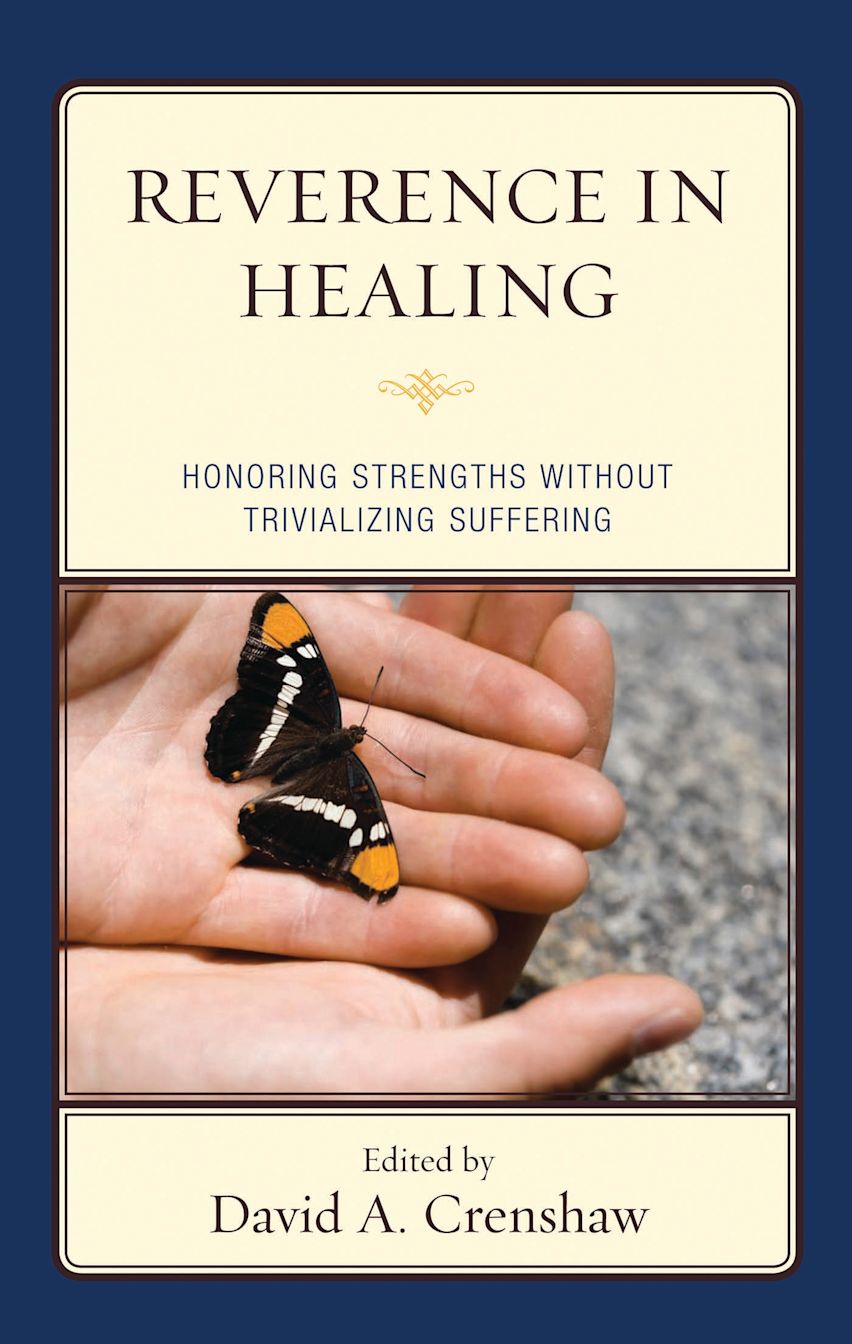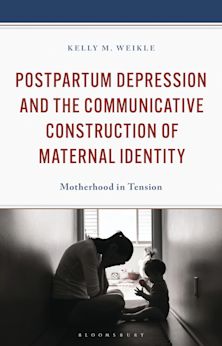- Home
- ACADEMIC
- Health & Wellbeing
- Mental and Emotional Health
- Reverence in the Healing Process
Reverence in the Healing Process
Honoring Strengths without Trivializing Suffering
David A. Crenshaw (Anthology Editor) , Megan Barbera (Contributor) , Greg Barker (Contributor) , Robert Brooks (Contributor) , Susan Cristantiello (Contributor) , Athena A. Drewes (Contributor) , Renee Fillette (Contributor) , Andrew Fussner (Contributor) , James Garbarino (Contributor) , Andy Kuntz (Contributor) , Edith Lawrence (Contributor) , Jennifer Lee (Contributor) , Sueann G. Kenney-Noziska (Contributor) , John Seymour (Contributor) , Amanda F. Sovik-Johnston (Contributor) , Misty Solt (Contributor) , John Sorocco (Contributor) , E Mark Stern (Contributor) , Lenore Strocchia-Rivera (Contributor) , Nancy Tsoubris (Contributor) , Steven Tuber (Contributor) , Donna Zulch (Contributor)
Reverence in the Healing Process
Honoring Strengths without Trivializing Suffering
David A. Crenshaw (Anthology Editor) , Megan Barbera (Contributor) , Greg Barker (Contributor) , Robert Brooks (Contributor) , Susan Cristantiello (Contributor) , Athena A. Drewes (Contributor) , Renee Fillette (Contributor) , Andrew Fussner (Contributor) , James Garbarino (Contributor) , Andy Kuntz (Contributor) , Edith Lawrence (Contributor) , Jennifer Lee (Contributor) , Sueann G. Kenney-Noziska (Contributor) , John Seymour (Contributor) , Amanda F. Sovik-Johnston (Contributor) , Misty Solt (Contributor) , John Sorocco (Contributor) , E Mark Stern (Contributor) , Lenore Strocchia-Rivera (Contributor) , Nancy Tsoubris (Contributor) , Steven Tuber (Contributor) , Donna Zulch (Contributor)
You must sign in to add this item to your wishlist. Please sign in or create an account
Description
Reverence is defined as a sense of awe or profound respect for the person. It has become increasing rare in modern culture, not only in health care, but in education and in corporations, where people are too often treated in a dehumanizing way. This groundbreaking book is the most comprehensive volume to-date that explores in depth the concept of reverence and strengths-based approaches in the psychotherapy healing process as manifested in a wide variety of treatment modalities such as child and play therapy, family therapy, therapeutic assessments, and in training programs. Applications in head start programs and group homes, with both juvenile offenders and traumatized children, are covered in individual chapters along with using a strengths-based, reverent approach with providers.
Table of Contents
2 Acknowledgments
Part 3 I. Introduction and Overview of Reverence in Healing
Chapter 4 1. The Concept of Reverence in the Healing Process
Chapter 5 2. The Power of Mindsets: A Personal Journey to Nurture Dignity, Hope, and Resilience in Children
Chapter 6 3. Reverence for Spirituality in the Healing Process
Chapter 7 4. Reverencing the Many Faces of Each
Part 8 II. Reverence for Healing in Psychotherapy
Chapter 9 5. Resiliency-Based Approaches and the Healing Process in Play Therapy
Chapter 10 6. A Strengths-Based Approach to Dynamically Oriented Child Psychotherapy
Chapter 11 7.Overcoming All Odds: Helping Young Men Find Their Strengths
Chapter 12 8. Revering the Suffering and Strengths of Adolescent Girls
Chapter 13 9. Strengths-Based Approach to Trauma Treatment with Children
Chapter 14 10. A Competence Approach to Therapy with Families with Multiple Problems
Chapter 15 11. Strengths-Based Approaches with Adolescents and Families of Color
Chapter 16 12. Resilience among Children and Families in the Midst of Trauma and Change
Part 17 III. Strengths-Based Applications in Assessment, Training, and Treatment Collaboration
Chapter 18 13. Strengths-Based Therapeutic Assessments of Families
Chapter 19 14. Developing a Focus on Mental Health in the Head Start Classroom
Chapter 20 15. What's "Good for the Goose": The Strengths-Based Approach with Providers
Chapter 21 16. Strengths-Based Healing with Youth in Juvenile Detention
Chapter 22 17. A Home of Healing and Reverence
Chapter 23 18. The Use of Positive Ethics in the Supervision of Doctoral Psychology Interns
Chapter 24 Epilogue: Reverence for Healers
25 Index
26 About the Contributors
Product details
| Published | Nov 25 2009 |
|---|---|
| Format | Ebook (Epub & Mobi) |
| Edition | 1st |
| Extent | 288 |
| ISBN | 9780765706607 |
| Imprint | Jason Aronson, Inc. |
| Publisher | Bloomsbury Publishing |
About the contributors
Reviews
-
Since the 1980s, the emphasis in healthcare and mental health care has been on managing benefits and productivity rather than on what used to be called the “art” of medicine. Reverence in the Healing Process offers a necessary corrective for that harsh reality. The basic concept that guides every chapter in this multi-authored book is a deep and abiding respect for all life that is so often absent in the mad search for ever-increasing profits at the expense of people's lives. Editor Crenshaw and his colleagues take a strengths-based approach to the children, adults, and families they seek to help. But in doing so, they do not pretend that the tragic experiences of life are innocuous events that people should just bounce back from. Their work honors the suffering that is the lot of so many, while revering the human ability to overcome adversity, even against great odds.
Sandra L. Bloom, MD, Drexel University
-
Crenshaw delivers again. This time, the goods are vaunted distinctions that we as clinicians must make along the delicate lines of being reverential and honoring transformation as we witness healing in the consulting room. Moreover, this book presents a depth of knowledge in the strengths-based approaches to psychotherapy, replete with the poetry of John O' Donohue to the mythology of Jung. Highly recommended for those who practice from or want to ascribe to the Wellness Model.
Eric J. Green, The Chicago School of Professional Psychology
-
In this book, David Crenshaw and his contributors highlight mindful therapy that honors the spirit of each child and adolescent, as well as the adults in their worlds. The book is a gentle, thoughtful reminder of the true essence of therapy, respect for each individual's unique capacity for healing.
JoAnna White, Georgia State University



































